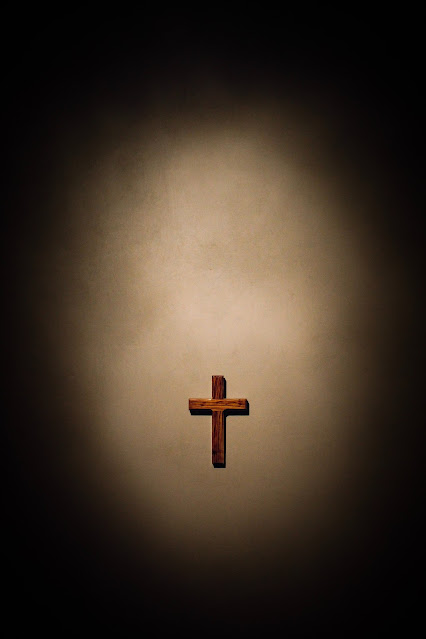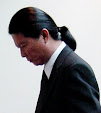Death Ends A Life But Not A Relationship
Here I would like to honour the people who are dear to me and have gone before me;
In Memoriam. September 2022.
• Grandfather and Grandmothers (Ah Kong, Ah Mah, Sar Mah)
• Mother (Mama)
• Step-Mother (Abu)
• Father (Papa)
• Son (Jon)
• Father and Mother in law (Kung Kung and Po Po)
• Elder Sister (Ah Chi)
• Dato' Douglas Lee
• Queen Elizabeth II
 |
| Coat of Arms of Queen Elizabeth II |
The recent demise of the Queen at age 96 saw the end of an epoch, of the past.
Her funeral became the most watched event in television history.
Never was silence and stillness observed for such long drawn periods amongst the people present during the procession of the Queen's coffin whether drawn on a gun-carriage by young naval officers or by horsepower to Windsor.
As much as people understand that die we all must, and that in this case there is even cause for celebration, anyone living past the big nine-O deserves a standing ovation. But as the moments and days go by from her demise, there remains another kind of mourning. Perhaps not a mourning but a feeling of a sense of loss of more than just a monarch or an extraordinary human being but the loss of values - propriety, family, dogs, horses, duty, honesty, simplicity, discipline, sacrifice, selflessness, leadership, understanding, womanhood and love.
One could argue that she lacks the last value but she loves everyone equally, starting from the inner family circle, outer family, community, the government, and the nation including the commonwealth. She mustn't be seen to have favourites and she wasn't.
Which was clearly demonstrated in the case of Princess Margaret, her dearest only baby sister.
She and Margaret when very young, made a promise to their father King George VI to never let anything or anyone come between them. When Margaret wanted her permission to marry the love of her life; Group Captain Peter Townsend, who was a war hero commissioned to serve in the royal household when George VI was king, she wholeheartedly gave her approval but the church and the parliament disapproved even though then Prime Minister Winston Churchill, personally approved of "a lovely young royal lady married to a gallant young airman."
His cabinet refused to approve the marriage and the Archbishop of Canterbury did not approve of Margaret marrying a divorced man. The whole affair caused a constitutional crisis.
The Queen stood her ground helping Margaret navigate the crisis, she planned to amend the 1772 Act making a royal marriage requiring the Queen's permission, allowing Margaret to marry Peter by removing her and any children from the marriage from the line of succession and thus the Queen's permission would no longer be necessary.
"Her Majesty would not wish to stand in the way of her sister's happiness." she wrote in a letter on the subject to the Commonwealth Prime Ministers.
In the end, Margaret and Peter decided not to marry and issued a statement citing the Church's teachings and duty to the Commonwealth as reasons.
The Queen and her sister Princess Margaret were as thick as thieves growing up with their father and mother King George VI and Queen Elizabeth Bowes-Lyon, who wasn't born fellow royalty. They were just the Duke and Duchess of York then with two daughters, Elizabeth and Margaret. The close family lived in 145 Piccadilly rather than one of the royal palaces. They had pretty much settled down to a normal quiet family life.
However that was not to be, when the heir apparent to King George V, King Edward VIII, abdicated the throne to marry Wallis Simpson, a twice divorced American woman. Reluctantly Prince Albert (Bertie) accepted the throne to become King George VI. Bertie went to see his mother Queen Mary, told her what had just happened and cried his eyes out, sobbing like a child.
From that day onwards, the sisters Elizabeth's and Margaret's lives took a big turn. They in turn became heirs apparent to the throne of the United Kingdom.
George VI although a good king, never expected or wished to be King. Although he suffered from a speech impediment, he never lacked bravery or enterprise and he had a strong sense of duty. He fought in WW1 and he was the first member of the royal family to learn to fly. He became King in December 1936. Shortly afterwards, WW2 descended on Britain. The royal couple and their family rose to the occasion and held the nation together by staying at their posts all through the blitz and showed love and care for their people. In addition, they coped brilliantly with the aftermath of the abdication restoring faith in the monarchy.
The post war years saw Britain undergoing economic hardship and the King's health took a heavy toll. He had been a heavy smoker and had his lung removed in 1951. He died in his sleep in the winter of 1952.
Princess Elizabeth and Prince Phillip was on the tour of the Commonwealth on behalf of the King. She was on the first leg of the tour in Kenya when she received news of the King's death. She immediately returned to Britain as Queen Elizabeth II.
So, as subjects of the Commonwealth and therefore the Crown, one can't help but feel the loss of recent days. The events that unfolded and the implications that were felt makes one want to contemplate the legacy that the late Queen has left behind.
For starters, for those of us, Malaysians or otherwise who were brought up on the English tongue, know that we have been speaking and writing the Queen's English. And if the comprehension and expression of your English far surpasses your own native language, then your mother tongue is English.
I have often wondered what language would I be fluent in, had the British not colonised Malaya then?
Would I still be able to enjoy the news, writings, books, literature, entertainment, civilisation, culture, fashion, food, politics, racism, imperialism, and so forth, the way a British subject would or would the outcome be totally different?
I don't yet have the answers to that question but I daresay I can see, with the passing of this woman, that she was not only Queen of the United Kingdom or the Commonwealth but the entire civilised world. To put it in the words exchanged between, the Queen and Princess Margaret after her coronation which was telecast live on television to a worldwide audience, Margaret said to Lilibeth; "You are the most popular person in the world". Lilibeth replied; " and you are the luckiest."
Her popularity was, unlike that of famous politicians, movie stars, celebrities or even Jesus.
On the eve of her coronation day, she made a radio broadcast to the Commonwealth in which she pledged her devotion to its people saying;
"Throughout all my life and with all my heart I shall strive to be worthy of your trust."
Coronations have been held at Westminster Abbey for 900 years and The Coronation of Queen Elizabeth II was to follow suit. Her coronation was set on 2 June 1953, only sixteen years earlier she had watched her father King George VI crowned in the elaborate ceremony in 1937. Hers was setting records of its own. It was the first ever to be televised in colour, it was watched by 27 million people and heard on the radio by 11 million people in the UK and over 200 million people around the world.
The Archbishop of Canterbury conducted the service, a duty undertaken since 1066. The coronation service include the Anointing of the sovereign with Anointing oils before god in an abbey.
Therefore the Queen is installed as the monarch who is answerable to God.
That is indeed a divine calling. No doubt when the crown was placed on her head, its weight was more than just a jewel-encrusted headgear. It came with the trust, the hopes and dreams of millions of people that the Queen will rule fairly and justly with dignity.
Looking back at the 70 years of reign, she has delivered on the oath she took when she was anointed, crowned and installed as Queen at 25 years of age.
What a feat it was for any human being to achieve. It would seem that only a woman could have achieved that as it has just been proven that no man has ever done in the civilised world.
Although she had her fair share of challenges, governmental- mainly with the executive, the occasional family crisis including Princess Margaret, Princess Diana, and Prince Andrew. During her reign violence was central to the empire as exploitation of the colonies throughout the world brings into question whether the British Empire was a force of good or one of violent subjugation and exploitation? That is a story for another day.
For now, I would like to mourn the passing of a remarkable woman who kept her promises, who said what she meant and meant what she said and in so doing, exalted womankind, inspired women and men around the globe. She carried out her divine work with her very potent 'soft' power.
And to celebrate her life while bidding farewell to the end of the epoch of the Elizabethan age.
Thank you. Rest in Peace Ma'am.
P/S; Do you know The Queen's nickname?







.jpeg)



.jpeg)
.jpeg)












